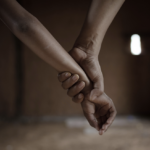Notorious Misogynist Charged with Sexual Assault and Human Trafficking

Self-proclaimed misogynist Andrew Tate, who also regularly professes homophobic and racist views, has been charged by Romanian authorities with several criminal offences including sexual assault and human trafficking.
The notorious bigot’s brother, Tristan, and two Romanian women are also facing human trafficking charges.
Initial arrest
Andrew Tate was arrested at his Bucharest home in December 2022 and spent three months in prison, before being released in March this year under house arrest.
He appeared in court for the first time this week to face the charges.
Each member of the group has steadfastly denied the allegations and vehemently professed their innocence.
As the justice system progresses, the world, in particular the media, has to be careful not to pre-judge Andrew Tate despite his highly controversial comments about women, members of the LGBTI community and Jewish faith, and anyone else he sees as inferior to himself.
Controversial ‘influencer’
After retiring from professional kickboxing, Andrew Tate made a name for himself as an “influencer”, with a lavish ultra-masculine lifestyle, lots of cash cash and fast cars.
He has millions of young male followers, many of who came into contact online with Andrrew Tate through his online course which promises through ‘advanced education and mentoring from multimillionaire experts’ to teach people how to make money online.
After his arrest, assets including 15 luxury cars, luxury watches and about $US3 million in cryptocurrency, were confiscated by prosecutors.
Andrew Tate’s controversial rise to fame began in 2016 when he was a contestant on Big Brother (UK). He came to attention when he made homophobic and racist comments on Twitter, but was eventually booted off the reality TV show after a video of him striking a woman with a belt was leaked to the media. It apparently showed Andrew Tate threatening to “fucking kill her” if she messaged another man.
At the time, Tate defended the video calling it a “kinky sex video” , and that it had been edited to make it look more sinister. He said the footage was fully consensual.
Some time later he was banned by Twitter for saying women should “bear some responsibility” for being sexually assaulted – his account has since been reinstated.
However, he is, like anyone charged with criminal offences, innocent until proven guilty by the Courts in Romania.
The allegations
Romania’s anti-organised crime agency alleges Andrew Tate, his brother and the other two defendants formed a criminal group in 2021 “in order to commit the crime of human trafficking” in Romania as well as in the United States and Britain.
Both Andrew Tate and his brother Tristian hold dual British-US citizenship.
Human trafficking and sexual exploitation
The agency alleges that seven female victims were misled with promises of love and marriage, and transported to Romania, where the gang sexually exploited them and subjected them to physical violence.
One defendant is accused of sexually assaulting a woman twice in March 2022.
A statement from Romanian Prosecutors says the alleged victims were reportedly taken to buildings in Ilfov county in Romania where they were intimidated, placed under constant surveillance and control and forced into debt.
The complainants were allegedly then forced to take part in pornography which was later shared on social media.
The Romanian legal system is very different to what we’re used to here in Australia. Despite being charged, the defendants may wait years for a trial.
A Romanian Judge now has 60 days to inspect the case files and set a trial in motion.
Penalties in Romania
Romania, which has one of the highest rates of human trafficking in the world, has recently amended its criminal code to include tougher penalties for human trafficking offences and is working to implement a wider strategy for prevention and to ensure that victims have access to compensation.
The offence of human trafficking of adults and sexual assault each carry maximum prison sentences of 10 years in Romania.
Authorities say the investigation is ongoing and further charges may be brought over allegations of money laundering and trafficking of minors.
Human trafficking offences in Australia
In Australia, human trafficking encompasses a range of offences relating to the exploitation.
The main offences – slavery, servitude, forced marriage, forced labour and trafficking in persons – are contained in sections 270 and 271 of the Criminal Code Act of 1995.
Trafficking in persons – entry to Australia
Section 271.2(1) states that a person commits an offence of trafficking in persons if:
(a) the first person organises or facilitates the entry or proposed entry, or the receipt, of another person into Australia; and
(b) the first person uses coercion, threat or deception; and
(c) that use of coercion, threat or deception results in the first person obtaining the other person’s compliance in respect of that entry or proposed entry or in respect of that receipt.
Trafficking in persons – exit from Australia
Section 271.2(1A) states that a person commits an offence of trafficking in persons if:
(a) the person organises or facilitates the exit or proposed exit of another person from Australia; and
(b) the person uses coercion, threat or deception; and
(c) that use of coercion, threat or deception results in the person obtaining the other person’s compliance in respect of that exit or proposed exit.
Trafficking in persons – entry to Australia – reckless as to exploitation
Section 271.2(1B) states that a person commits an offence of trafficking in persons if:
(a) the person organises or facilitates the entry or proposed entry, or the receipt, of another person into Australia; and
(b) in organising or facilitating that entry or proposed entry, or that receipt, the person is reckless as to whether the other person will be exploited, either by the person or another, after that entry or receipt.
Trafficking in persons – exit from Australia – reckless as to exploitation
Section 271.2(1C) states that a person commits an offence of trafficking in persons if:
(a) the person organises or facilitates the exit or proposed exit of another person from Australia; and
(b) in organising or facilitating that exit or proposed exit, the person is reckless as to whether the other person will be exploited, either by the person or another, after that exit.
Trafficking in persons – entry into Australia – deception as to sexual services or exploitation, or confiscation of documents
Section 271.2 states that a person commits an offence of trafficking in persons if:
(a) the person organises or facilitates the entry or proposed entry, or the receipt, of another person into Australia; and
(b) the person deceives the other person about the fact that the other person’s entry or proposed entry, the other person’s receipt or any arrangements for the other person’s stay in Australia, will involve the provision by the other person of sexual services or will involve the other person’s exploitation or the confiscation of the other person’s travel or identity documents.
Trafficking in persons – exit from Australia – deception as to sexual services or exploitation, or confiscation of documents
Section 271.2(2A) states that a person commits an offence of trafficking in persons if:
(a) the person organises or facilitates the exit or proposed exit of another person from Australia; and
(b) the person deceives the other person about the fact that the other person’s exit or proposed exit is for purposes that involve the provision by the other person of sexual services outside Australia or will involve the other person’s exploitation or the confiscation of the other person’s travel or identity documents.
Trafficking in persons – entry into Australia – arrangement for sexual services by deception etc
Section 271.2(2B) states that a person commits an offence of trafficking in persons if:
(a) the person organises or facilitates the entry or proposed entry, or the receipt, of another person into Australia; and
(b) there is an arrangement for the other person to provide sexual services in Australia; and
(c) the person deceives the other person about any of the following:
(i) the nature of the sexual services to be provided;
(ii) the extent to which the other person will be free to leave the place or area where the other person provides sexual services;
(iii) the extent to which the other person will be free to cease providing sexual services;
(iv) the extent to which the other person will be free to leave his or her place of residence;
(v) if there is a debt owed or claimed to be owed by the other person in connection with the arrangement for the other person to provide sexual services–the quantum, or the existence, of the debt owed or claimed to be owed.
Trafficking in persons – exit from Australia – arrangement for sexual services by deception etc
Section 271.1(2C) states a person commits an offence of trafficking in persons if:
(a) the person organises or facilitates the exit or proposed exit of another person from Australia; and
(b) there is an arrangement for the other person to provide sexual services outside Australia; and
(c) the person deceives the other person about any of the following:
(i) the nature of the sexual services to be provided;
(ii) the extent to which the other person will be free to leave the place or area where the other person provides sexual services;
(iii) the extent to which the other person will be free to cease providing sexual services;
(iv) the extent to which the other person will be free to leave his or her place of residence;
(v) if there is a debt owed or claimed to be owed by the other person in connection with the arrangement for the other person to provide sexual services–the quantum, or the existence, of the debt owed or claimed to be owed.
Definitions
The following definitions apply for the purposes of human trafficking offences:
‘Exploitation’ is conduct causing the victim to enter into slavery, or a condition similar to slavery, servitude, forced labour, forced marriage or debt bondage.
‘Deceive’ means to mislead as to fact – including the intention of any person – or as to law, by words or other conduct.
‘Coercion’ includes force, duress, detention, psychological oppression, abuse of power or taking advantage of a person’s vulnerability.
To ‘confiscate’ means to take possession of, whether permanently or temporarily, or to destroy.








